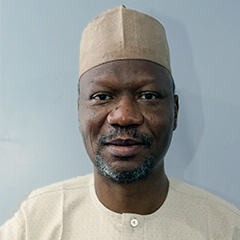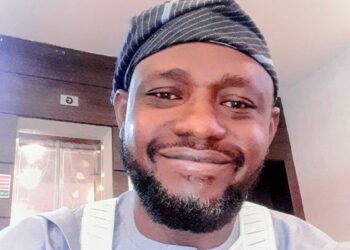Not a few citizens are dissatisfied with the current establishment order of politics and governance in Nigeria. Hopes and aspirations of a better Nigeria that heralded the transition from military to civil democratic rule in 1999 have remain largely unrealized. Political parties that are supposed to be the fundamental structures upon which the political entire democratic political process rests have largely been opportunistic means of achieving power for self-serving purposes. The manifestos of all political parties are similar in empty rhetoric, full of sound and fury. This unsatisfactory state of political affairs have necessitated the now spontaneous idea of a ‘’Third force’’ as a rejuvenated ideological platform to alter the course of Nigeria’s journey to a prosperous nationhood away from the path of a mutually assured self-destruction. However, the vocal few who are championing this latest intervention in the political landscape have not been able to articulate the vision and mission of a third force in perspectives relevant to Nigeria’s socio-economic well-being.
The first of many steps towards achieving a Nigeria that realizes our aspirations for a progressive, prosperous and just society is to first admit individual complicity in the bad state of affairs that has characterized our fatherland. Some of us have allowed our ethno-geographic and religious biases to degenerate into bigotry, which has largely defined our democratic choices. Interestingly, these sectional tendencies have failed not just the Nigerian state but even the anticipatory sectionalists’ beneficiaries. Former president Goodluck Jonathan six yearspresidency did not transform the land and peoples of Niger delta positively and current President Muhammadu Buhari’s rule in three years have not changed the status of the North West from the poorest region in the world. The same way Jonathan administration left the environmental degradation of the land and waters of the Niger Delta unsolved, the Buhari administration is not likely to solve the myriads of problems confronting the North West region, one of which is the potentially explosive numbers of out of school children [Almajiri] roaming the streets.
Nigerians who have come to the realization of the futility of sectionalism are the first recruits into a Third Force. A third force ideologue must be that Nigerian who believes every Nigerian irrespective of ethno-geographic origin or religious orientation are one because absolute unity of Nigerians is a condition precedent for growth and development. Having achieved the self-enlightenment that Nigeria is not a diverse country as widely believed but a mono-racial nation of traditionally linked ethnic groups domiciled in all its four cardinal points, a third force ideologue must take deliberate steps to integrate and assimilate with every Nigerian economically and politically. For example, a third force ideologue like ObyEzekwesili, who is from Anambra state and ethnically identifies as ‘’Igbo’’ must first recognize an ‘’UmaruBako’’ whose grandfather moved from Daura in Katsina state a century ago and settled in a place called Bida, in the commercial city of Onitsha, where he was born, bred, schooled and speaks Igbo language effortlessly as a bona fide Anambra indigene with all rights and privileges extended to him accordingly. Similarly, a third force political figure like Donald Duke should be seen using his influence to get a ‘’JideSumonu’’ who originally identifies as ethnic Yoruba but was born, bred and schooled in Cross River state, elected into the state house of assembly to represent Calabar Municipal area council, in a deliberate show of the belief in the sanctity of the oneness of all Nigerians. All third force ideologues from across the country must embody and demonstrate these deliberate sure steps towards national assimilation and integration.
A Third Force is not likely to be confined within the rigid structures of a political party neither is going to be about personalities. Rather, A Third Force will be an embodiment of a Pan-Nigerian agenda for inclusive growth and development that will redefine the goals of citizen’s participation in partisan politics, which will in turn expectedly yield benefits in form of legitimate individual prosperity. Political participation is always with the aim of individual benefit just as most people worship God because of the promise of a Paradise flowing with milk and honey. The challenge before this emerging third force is to situate individual benefit within the broad framework of a mutually beneficial system that is neither parasitic on the people or government. To supplant the old order, a new order must not displace the current beneficiaries of the system but only seek to substitute the mode of benefit from disruptive to creative. Currently, political participation is fundamentally driven by primitive acquisition for individual and sectional enhancement at the expense of the Nigerian state, which is detrimental to its growth and development.
To move away from this self-immolation of materially parasitic and divisive political process, a third force should evolve a vision of a prosperous Nigeria whose existence is more for economic reasons than political by mobilizing Nigerians to realize the importance of pragmatically aligning their democratic choices with their individual legitimate business interests, which collectively aggregates as the core of Nigeria’s economy away from ethno-geographic and religious sentiments. The old order thrived pretty much on ethno-geographic and religious sentiments, which unfortunately led to the current state of dysfunction in our polity with grave consequences of retrogression in all spheres. When people align their democratic choices with their ethnicity or religion, they get such tokenism as ethno-religious patronage in form of appointments of their elite into juicy public offices, sponsorship on pilgrimages, donation of worship centres and government contracts for a few connected individuals, leaving the majority of the people’s needs unattended.
Under the current order, reward for partisan participation is by way of direct patronage from public purse. The unsustainability of the current order is evident in the growing army of politicians who are entangled in mortal combat for a space in the sharing table as the economy has largely been left unattended. Ironically, the temporary acquisitions from public office no longer go a long way to sustain the beneficiaries after office. They ultimately become victims of the bad system they helped nurtured while they were opportune to serve in government. In the end everyone is a loser under the current order. Hence the need for a third force as a way out.
Mobilizing Nigerians to pragmatically align their legitimate individual business with their democratic choices, the retrogressive ties of ethnicity will be broken as artisans, medium and large scale entrepreneurs from different from the four cardinal points of the Nigerian nation will converge on a common interest of policy promise that will enhance their collective business interests. This will create a new progressive association outof every ethnic group in Nigeria whose bond is not language and culture but shared economic interests.Artisanal shoe makers from Kano, Ibadan and Abawill come together and bet their money and political influence on a policy that enhances their shoe making business irrespective of the ethno-geographic or religious background of the candidate making the promise. A third force should guide the emergence of unifying economic blocs like guild of artisans, chambers of commerce and industry to replace divisive ethno-geographic blocs likes Ohaneze, Arewa and Afenifere as the main influences of Nigeria’s democratic political process. Most significantly, the reward for partisan political participation will be reaped from well implemented social contract that will enhance individual legitimate business ventures with resultant increase in profits, upon which participants based their support and government’s lean resources will no longer bear the burden of a bloated bureaucracy to accommodate professional politicians. This will eventually lead to emergence of political parties with clear cut ideological leaning as each as electioneering will become a healthy competition of ideas on how to enhance the economic well-being of the citizens. Card carrying membership of political parties will give way to membership by shared ideological leanings.
On a medium and large scale business levels, a third force should be able to clearly define the role of the state in the economy, taxation as well as evolve a realist foreign policy that will guarantee Nigeria a fair share of world trade by negotiating favourable trade deals and securing for Nigerian businesses profitable overseas investment opportunities. Furthermore, a third force must seek to reverse the current trend that makes Nigeria a thoroughfare for all and sundry across Africa. An immigration policy that admits the best of human resources but shuts out the worst in order to shore up domestic inadequacies must be evolved. In doing these and more, a third force would have redefined Nigeria’s democracy as not just a government of the majority but in the new order, numerical superiority of ideas and not ethnicity.



